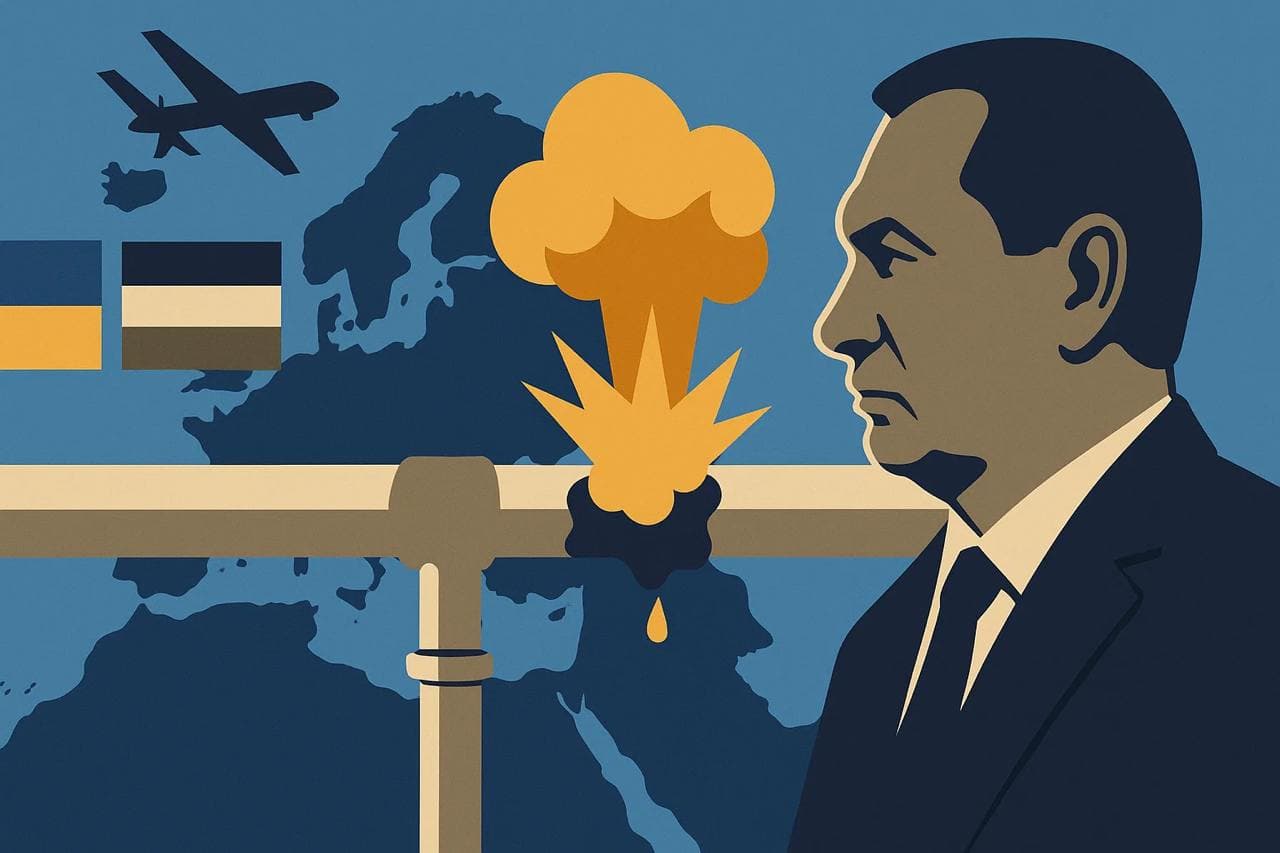Ukraine"s Drone Strike Disrupts Russian Oil Flow to Hungary, Heightening Tensions
In a bold military maneuver, Ukraine executed a drone strike on the Druzhba pipeline, a crucial conduit for Russian oil supplies to Hungary, temporarily halting flows and amplifying geopolitical tensions in Eastern Europe. This assault, which took place on recently, underscores Ukraine"s strategic intent to provoke a response from Russia amidst ongoing international dialogues, particularly in light of recent discussions involving former U.S. President Donald Trump.
Background & Context
The Druzhba pipeline, one of the world"s longest oil pipelines, has historically served as a vital artery for Russia"s energy exports to Europe. Its significance extends beyond mere economics, as it symbolizes the intricate web of energy dependence that binds many European nations to Russia. The recent drone strike represents a calculated escalation by Kyiv, showcasing its willingness to disrupt energy supplies as a means of asserting its sovereignty and resistance to Russian aggression.
Recent developments in the conflict, including ongoing negotiations between Ukraine and various international stakeholders, have heightened the stakes. As previously reported, Ukrainian President Volodymyr Zelensky has publicly demanded that Russia be held accountable for its actions, emphasizing that Ukraine will not accept any peace terms that reward Russian aggression. This firm stance reflects Ukraine"s broader strategy to demonstrate its commitment to sovereignty while attempting to realign international support against Russian advances.
Key Developments
Following the drone strike, oil supplies to Hungary were briefly interrupted, prompting immediate concerns about energy security in central Europe. While repairs have since restored the flow of oil, the attack has drawn sharp reactions from both Hungary and Russia. Hungarian officials expressed alarm over the disruption, which they deemed unacceptable, given their reliance on Russian oil imports.
In a statement, a Hungarian government spokesperson condemned the strike, warning that such actions could complicate Hungary"s energy strategy and its relationship with Moscow. Meanwhile, Russian officials characterized the attack as a "terrorist act" aimed at destabilizing the region. This incident not only illustrates the precarious balance of energy dependency but also serves as a reminder of the ongoing conflict’s volatility and the potential for further escalations.
Broader Impact
The implications of Ukraine"s drone strike extend far beyond the immediate disruption of oil supplies. Analysts suggest that this tactic may inadvertently push Hungarian Prime Minister Viktor Orbán and other central European leaders closer to Moscow, complicating the unity of NATO and the European Union. As European nations grapple with their energy policies in light of the ongoing conflict, Hungary"s response could set a precedent for other nations similarly reliant on Russian energy.
Experts warn that such escalatory tactics by Ukraine may lead to increased military responses from Russia, further entrenching the conflict. The strike could also influence upcoming discussions among NATO members regarding collective defense strategies, especially as European nations seek to balance their energy needs with political alignments. The recent events serve as a stark reminder of the tightrope that central European countries must walk as they navigate their relationships with both Russia and Ukraine.
What"s Next
As tensions simmer, the international community is closely monitoring the situation for potential fallout. The prospect of further drone strikes or military actions by Ukraine remains a possibility, particularly as Kyiv seeks to demonstrate its resilience against Russian aggression. Observers are also keenly aware of the upcoming diplomatic engagements involving key players such as Donald Trump, whose stance on Eastern European security will likely shape future interactions.
Moreover, Hungary"s response to the disruption of oil supplies will be critical in determining the future of its energy policy and its relationship with Russia. Should Hungary pivot towards a more conciliatory approach with Moscow, it could signal a shift in the regional dynamics, impacting NATO"s collective strategy in Eastern Europe. As previously reported, the intricacies of energy reliance and geopolitical alliances continue to evolve, underscoring the complex landscape in which these nations operate.


![[Video] Heavy clashes and gunfire reported in Baghdad, Iraq](/_next/image?url=%2Fapi%2Fimage%2Fthumbnails%2Fthumbnail-1768342239932-848qsh-thumbnail.jpg&w=3840&q=75)




![[Video] Gunfire between Iraqi security forces and Sadr militias in Baghdad](/_next/image?url=%2Fapi%2Fimage%2Fthumbnails%2Fthumbnail-1768343508874-4redb-thumbnail.jpg&w=3840&q=75)
